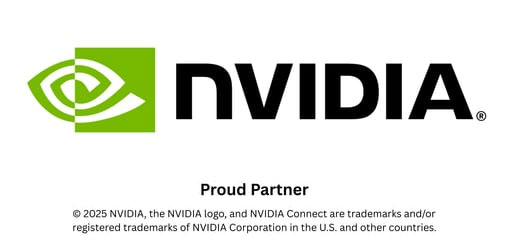For small and medium-sized businesses in Europe, the AI debate looks very different to that of Silicon Valley. While US headlines focus on productivity gains, now models and cheap APIs, European firms operate under stricter rules, higher compliance costs, and a legal environment where data sovereignty is non-negotiable.
The question is not just whether AI is affordable or accessible, but whether it is even deployable within the framework of GDPR and the EU AI Act.
Compliance First, Not Optional
The 2023 €1.2 billion GDPR fine against Meta (Facebook), imposed by Ireland’s Data Protection Commission, remains a turning point. Regulators ruled that Standard Contractual Clauses (SCCs) were insufficient to shield European data from US government surveillance under the Cloud Act and FISA 702. This precedent should make every European SMB pause.
Simply put, data hosted on US jurisdiction clouds such as AWS, Azure, or Google Cloud cannot be considered compliant, no matter where the servers physically sit. For SMEs, this creates a dilemma: the cheapest and easiest tools often route through US hyperscalers, but deploying them risks breaching GDPR and, under the AI Act, exposing the business to new liabilities.

Adoption Remains Modest And Uneven Across Europe
Eurostat data shows that in 2024, only 11.21% of small enterprises in the EU used AI at all, compared to 20.97% of medium firms and 41.17% of large firms. Among EU countries, Denmark, Sweden and Belgium lead in AI usage, while Romania, Poland and Bulgaria trail behind. European Commission
In the UK, nearly 37% of SMBs now leverage AI tools – France lags at just over 25%. That patchwork reflects how regulation, infrastructure and digital literacy still hinder uniform uptake across the continent. IONOS
The Governance and Regulatory Burden Hits Harder in Europe
We must not gloss over the reality: the EU AI Act (effective since 2024) imposes heavy obligations on high-risk AI systems – spanning transparency, human oversight and conformity assessments. For most SMBs, this means extra layers of cost and bureaucracy before using AI in HR, finance, healthcare or even in customer service.
OECD data indicates that across member countries, only 33% of SMEs currently use any AI tools – a number that suggests adoption remains nascent, constrained not just by cost, but by compliance complexity. icsb.org
GDPR Enforcement Is a Clear Signal: Data Sovereignty Cannot Be Ignored

In May 2023, the Irish DPC fined Meta a record €1.2 billion for unlawfully transferring personal data to the US, ruling that Standard Contractual Clauses (SCCs) were not sufficient safeguards.
This serves as a warning – small businesses cannot assume legal safety by relying solely on SCCs or US-hosted infrastructure. Under GDPR, data hosted on US jurisdiction platforms is inherently risky, including for AI use.
For any serious entrepreneur or board-level executive, this is a risk simply not worth taking. No one wants to destroy the company or even be personally liable for the damages caused to the company just by cutting a few corners.
AI Cost Savings? Yes. But Only If Legal Risks Are Resolved
On the upside, AI offers tangible benefits: UK SMEs report serious gains – between 27% and 133% productivity improvements, particularly for simple tasks like scheduling or marketing content. Piwik PRO
Between 2022–24, AI investment among UK SMBs grew fivefold, with estimated annual savings of over £29,000. These figures show that AI isn’t just hype – it can deliver meaningful, affordable outcomes. TechRadar
Yet for European SMBs bound by GDPR and the AI Act, cost advantage only matters if the infrastructure is compliant and trustworthy.
Skills and Awareness Gap Remains a Barrier
A prescriptive framework for European SMEs recognises that lack of technical skills, financial resources, and internal alignment are consistent barriers to AI adoption. arXiv
Even when infrastructure hurdles are solved, capability gaps remain. Research from Small Business Britain and BT found that while 62% of SMEs say they use AI, only 20% find it genuinely accessible, and more than half say they need hands-on support to deploy effectively.
The Institute of Coding reports only 12% of European SMEs have invested in AI training, while nearly a third cite lack of skills as a top barrier. Without EU-wide support schemes for training, SMBs risk being left behind, not because they cannot afford AI, but because they cannot implement it responsibly.
SMEs are rightly cautious – many lack the legal clarity, internal capabilities, or simply the skills even to use AI to deploy AI responsibly. Without targeted support, this gap may not close.
Final Thought
AI in Europe is not plug and play. It is compliance-driven innovation. SMBs cannot simply follow US marketing hype about cheap APIs and fast deployments. The Meta ruling proved that sovereignty trumps convenience, and the AI Act will only tighten the screws.
For European SMBs, AI is accessible only when it is compliant. That means EU-owned infrastructure, rigorous governance, and a long-term commitment to transparency. The firms that adapt early will not just stay on the right side of regulators – they will earn customer trust in a digital economy where trust is now the ultimate currency.
AI can be accessible and affordable for Europe’s SMBs – but only if compliance and sovereignty are built in from the start.
Victor A. Lausas
Chief Executive Officer
Subscribe to North Atlantic’s email newsletter and get your free copy of my eBook,
Artificial Intelligence Made Unlocked. 👉 https://www.northatlantic.fi/contact/
Discover Europe’s best free AI education platform, NORAI Connect, start learning AI or level up your skills with free AI courses and future-proof your AI knowledge. 👉 https://www.norai.fi/






